In this draft manuscript, I tell the story of a year in a New York City public middle school through a mix of poetry, collage, and real student work. I am seeking the opportunity to publish this book – below is the book proposal. Please contact me with ideas / interest.
Book Proposal – “Beyond Words”
New York City gives families choice in middle school admissions. It sounds nice: who doesn’t like choice? In exchange, schools are free to impose some kind of admission filter, and thus the vast majority do, from tests to lotteries. But even a simple lottery requires literacy, preparation, and time – three things not all parents have. A system of lotteries designed to break neighborhood segregation segregated the city’s children even more. So much so, that racial segregation in schools has returned to levels not seen since 1968.
This is the story of the kids who don’t enter that lottery. In the hallways of the public school I founded, In Bed Stuy, Brooklyn – the fastest gentrifying zip code in New York City – the walls breathe with their story. A brisk walk will flutter the papers of kids that are fresh off a plane from Yemen, the kids from the projects, the homeless kids, the kids who miss their fathers. Kids to whom the system assigned mostly less experienced teachers.
Beyond Words translates the feeling of being in this hallway over the course of an entire year. From the hard work preparing to open school, to the innocence and optimism of 12-year-olds and first-year-teachers on their first day, through struggles, gang fights, missing parents, accusations of sexual assault, political turmoil, and the glimmer of hope and triumph over a system that’s dealt both the adults and children cards from a deck stacked against them.
And it does so through the unorthodox means of the students and teachers within it – using the words of students themselves, mixed with poetry, collage, art projects, and more. This multimedia, creative approach should remind readers of the innocence of their own childhood, and the genius of their children if they have or teach them.
But the book also delivers a poignant reminder of readers’ own privilege through the book’s central insight: The children themselves are not any more damaged or flawed than their own students or children, but structural racism and classism guarantees them a different path. Their words and experiences serve as a wake up call to readers that great potential is getting lost, and, that if we really want the best for our children and our future, we need to grapple with the cost of the status quo, imagine a new reality and then work to make it real.
Contents
September
We meet the narrator, an educator, through her through to-do lists and her narrated experience of the stresses of opening school in September. We also meet the children by reading their initial hopes and dreams as written in their first week of school assignments.
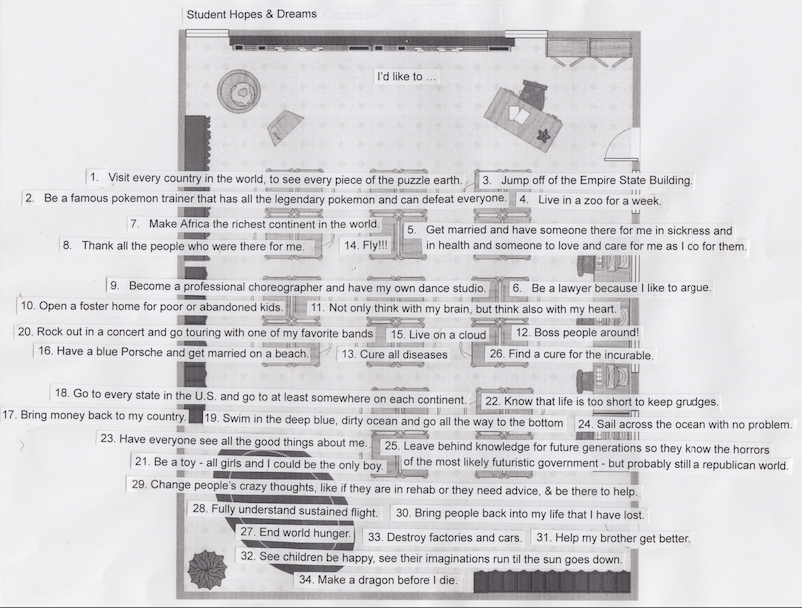
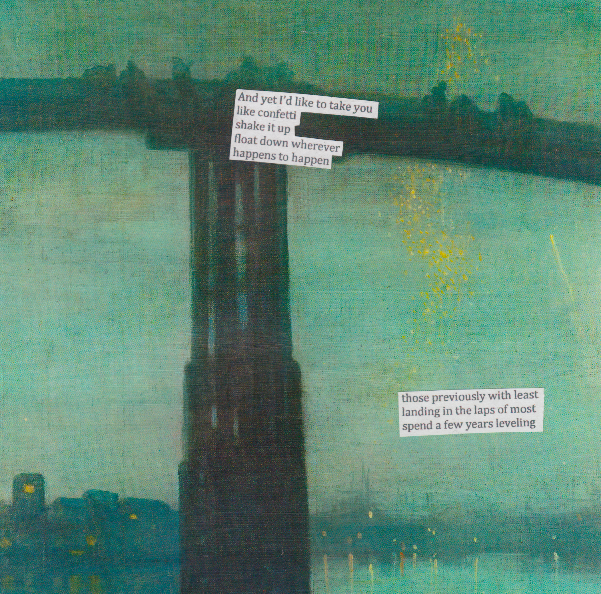
October
The narrator’s collage and poetry take readers through the story of a physical fight at the school that involves gang affiliation and the protagonist facing her own race and class privilege. This story is juxtaposed with a fantasy story written by a sixth grader that portrays a character trying to impress his absent father with his science fair project that goes awry and causes an explosion. The child’s writing and the educator’s actions are both sophisticated and childlike all at once, causing the reader to question whose knowledge and interpretations are most valid and establish a landscape in which simplistic solutions quickly appear irrelevant.
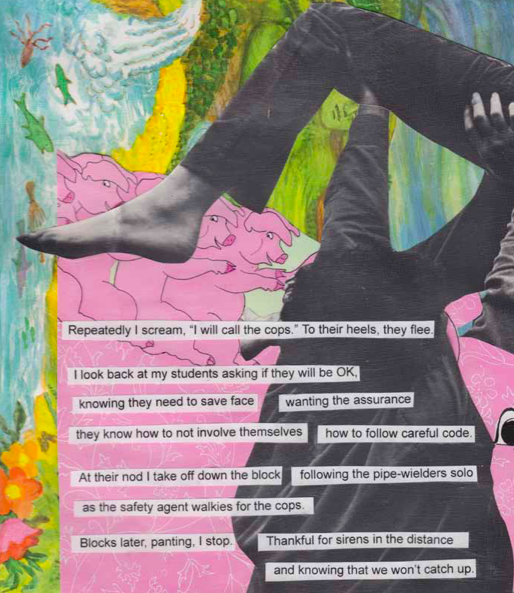
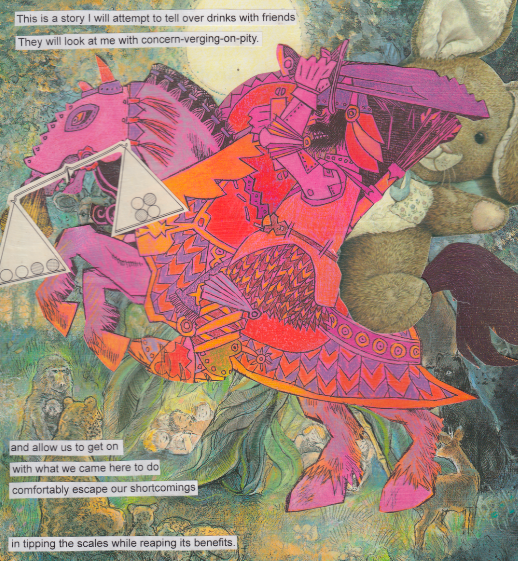
November
Children reflect on missing parents. The narrator and a social worker take readers along for a home visit to support a struggling student. Instead of experiencing pity, readers encounter reflections from children on the strong parents that remain and the brilliance of alternative families and their resilient children. The depth of the problems that the students face, and in turn the teachers face in addressing, become more apparent.
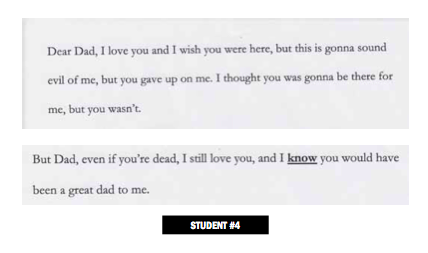
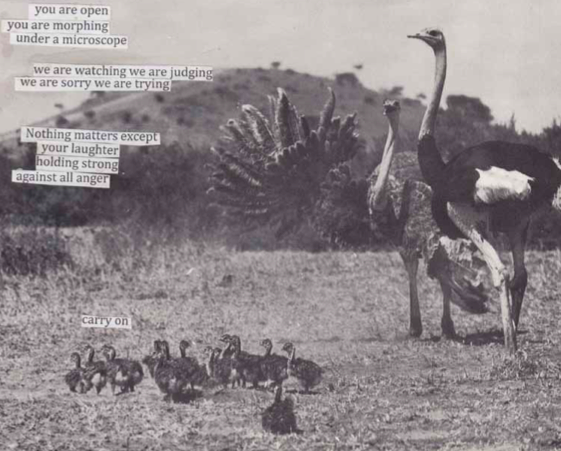
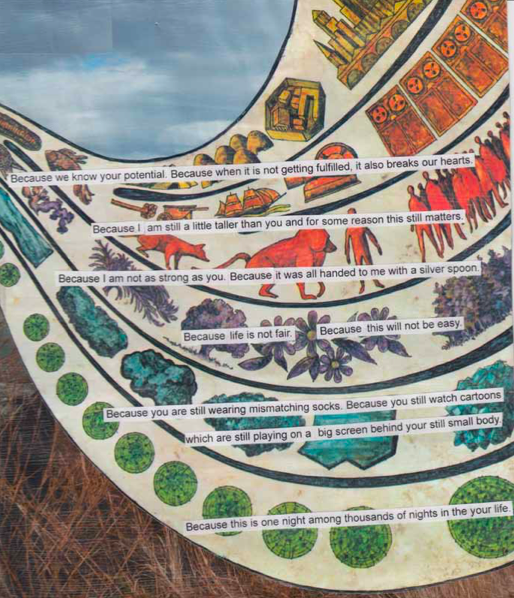
December
A child interviews her classmates about what they want to be when they grow up. This is juxtaposed with the narrator describing her concurrent stress dreams about the students and their futures, as well as her own. Hope and pressure intermingle.
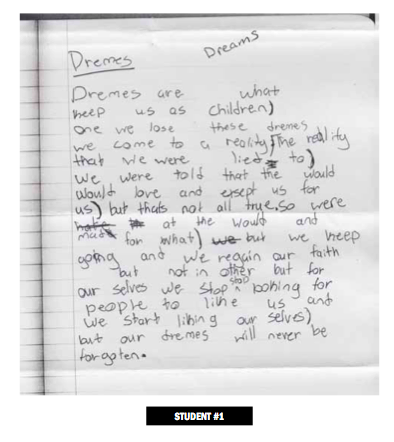

January
A child writes a personal essay about the stresses of an abstract child’s life that seems to parallel her own in terms of exposure to violence, that ends in fantastical suicidal ideation. The narrator writes about stress she experiences on Sundays before the week begins and fears of not meeting students’ needs or her life’s aspirations.
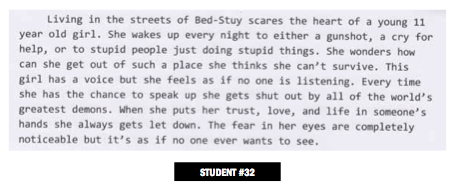
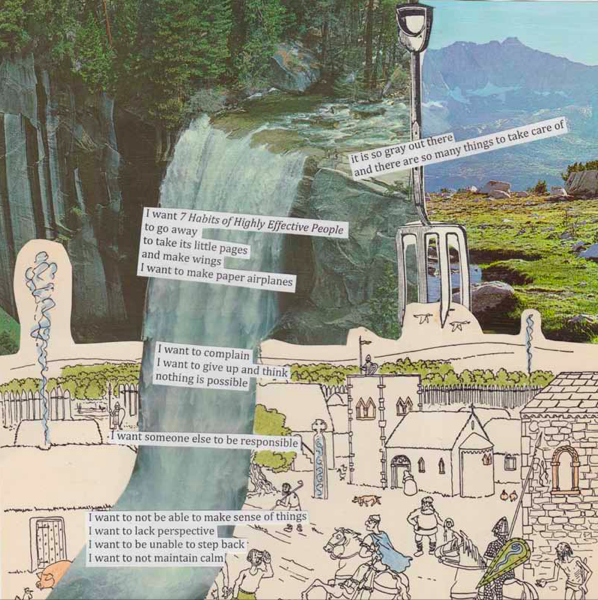
#MeToo (Bottle Episode)
The narrator describes handling a student’s allegations of a substitute teacher having acted in a sexually inappropriate manner. This story includes navigating Department of Education protocol, the NYC police department while attempting to emotionally care for and protect a vulnerable student. Simultaneously, readers encounter students’ stream of consciousness writing about the prompt: “What is in you soul?†Students here share more abstract hopes and dreams for the future.
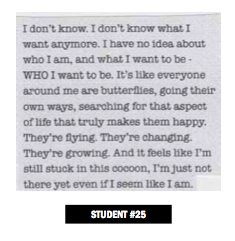
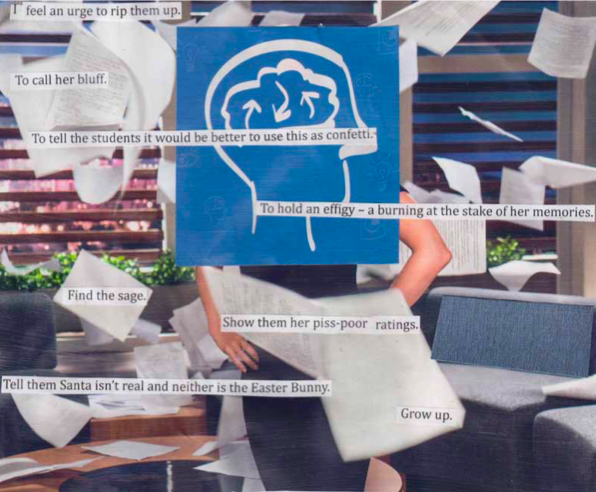
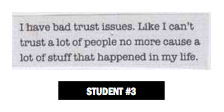
February
A range of student issues emerge from serious family crises to standard middle school crushes. The teacher reflects on many things happening at once, and her struggle to determine and allocate the appropriate amount of time to each issue.
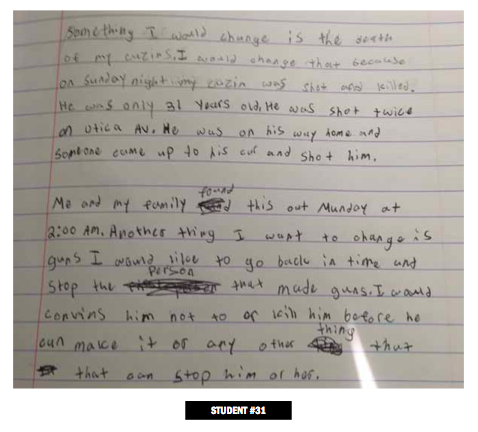
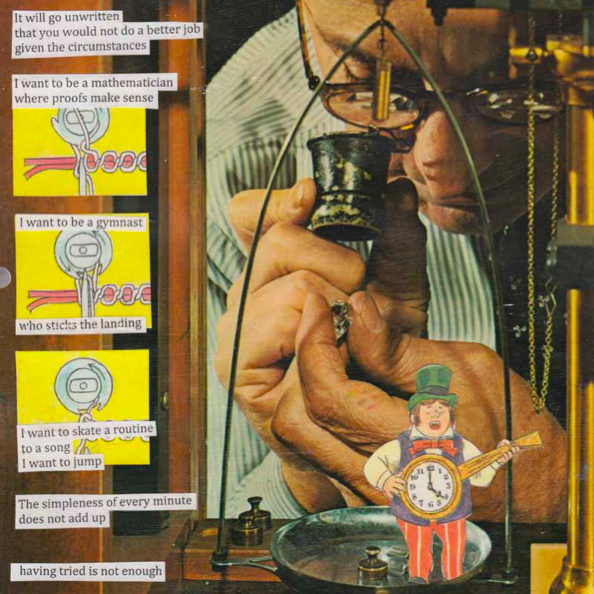
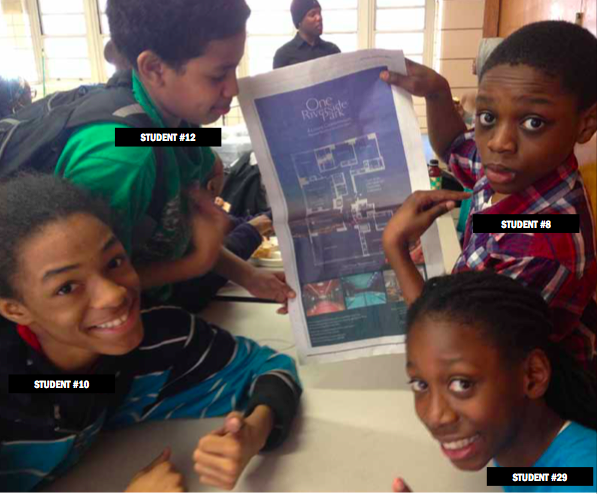
March
A student writes a letter to the world about racism. The narrator describes mediations between students about conflicts that have escalated to include racial epithets.
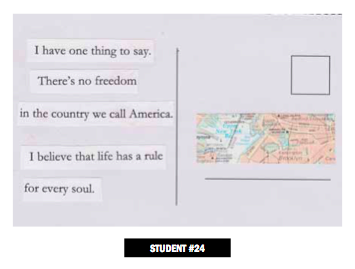
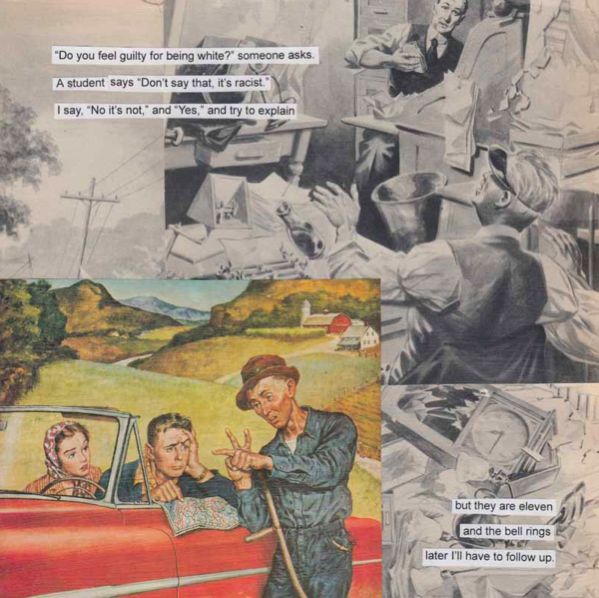
April
The educator reads many letters written to her by students, and writes an imagined letter back to students in general. The narrator reveals more about herself, her history in terms of race and class, as well as her place in the world and the work.
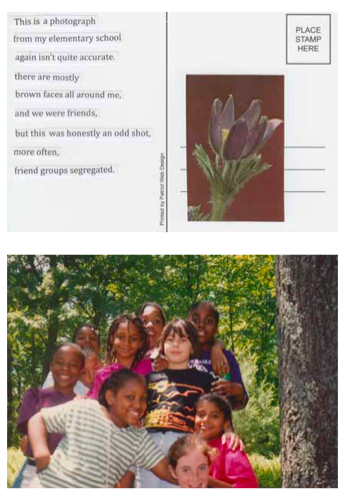
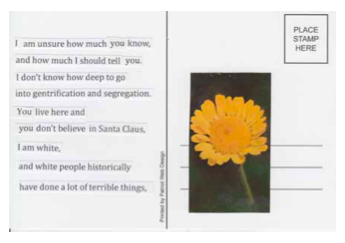
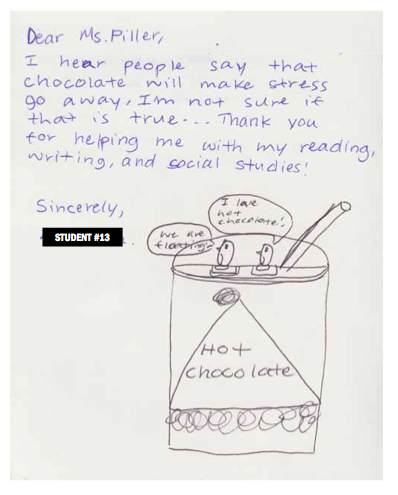
May
Readers get a first row seat to the onslaught of a high stakes testing day. These stories describe the stresses experienced by the children alongside the particular requirements of the vast bureaucracy, juxtaposing one-size fits all policy with the individual children and their needs. This includes testing requirements for students who are recent immigrants to the country and the wide gap between their obvious needs and the prescription afforded. Interspersed throughout, readers find student writing about topics they find more important and relevant than the content being tested.
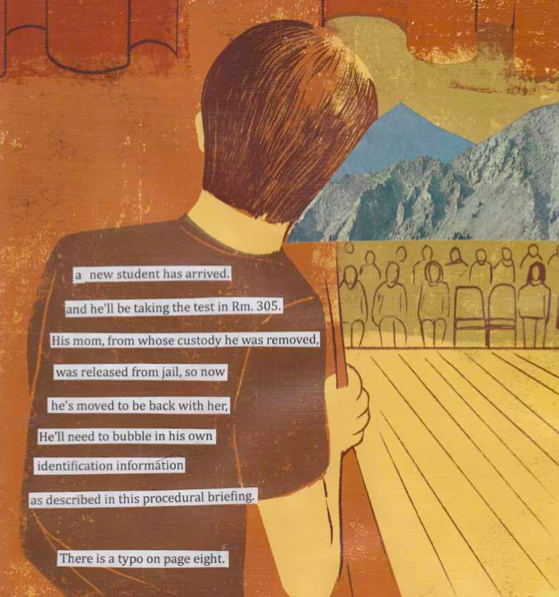
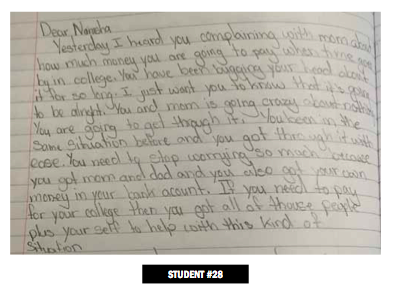
June
The final month of the school year, students give graduation speeches reflecting on their experience in middle school. The narrator struggles to say goodbye to the children and accept that the chapter is over though insufficient and incomplete.
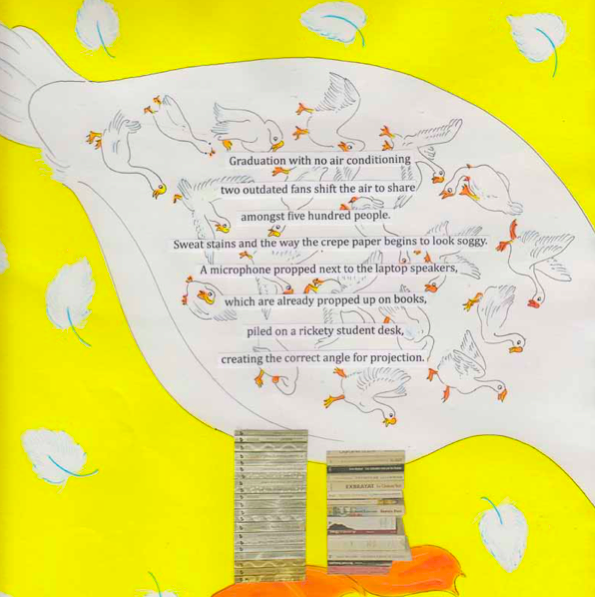
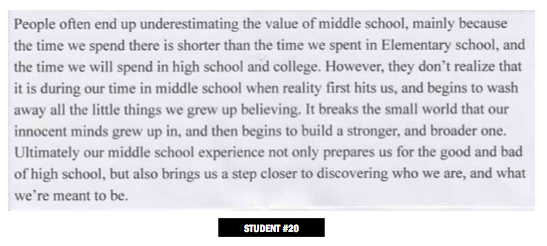
Summer
The narrator decompresses from the school year, reflecting on the highs and the lows, secondary trauma and gearing back up for another year.
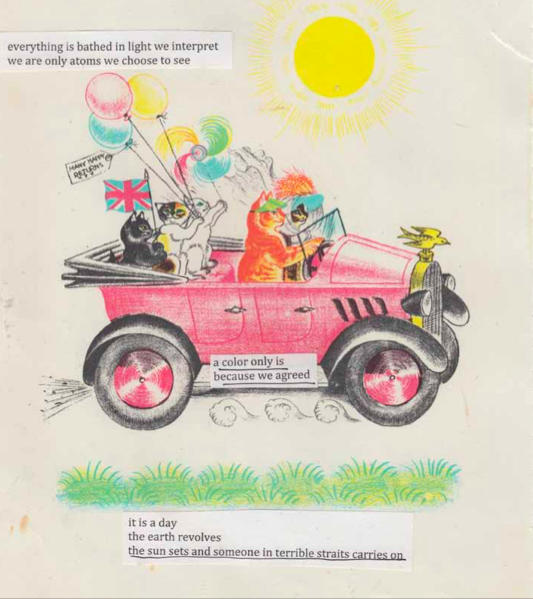
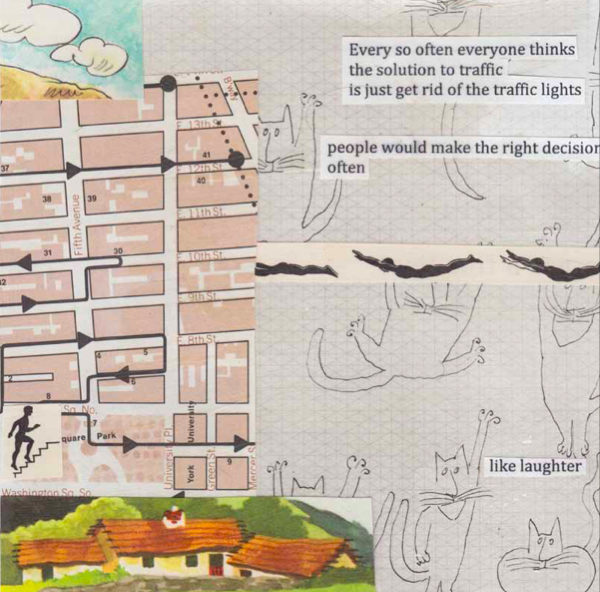
Audience
The main markets for this book include educators and families. This book left one teacher saying, “This made me feel less like punching things.†And the hormonal years of middle school are challenging for even the most prepared parents. All too often communicating with family about experiences as they happen is a loaded and tumultuous process. Parents want to better understand what is happening in their children’s mind’s eye so they can support them at home. Parents also want to better understand what school is like for their children so that they can advocate to improve schools. Parents will see their own children’s genius in the work of these children. Educators and prospective educators will also revel in reading this book. All too often texts written for educators are sterilized and prescriptive with “answers†that leave readers feeling hopeless about addressing the myriad needs in their classrooms. It is a read that would be restorative to the spirit of those working to make a difference in children’s lives.
Inspiration
This book follows in the tradition of Maira Kalman and Daniel Handler’s HURRY UP and WAIT with its combination of art and poetry, Eve L. Ewing’s Electric Arches with its imaginative use of student voice, and James Herndon’s How to Survive in Your Native Land with its up close and personal teacher reflections.
Timetable
Draft complete. Pending only publisher’s edits.